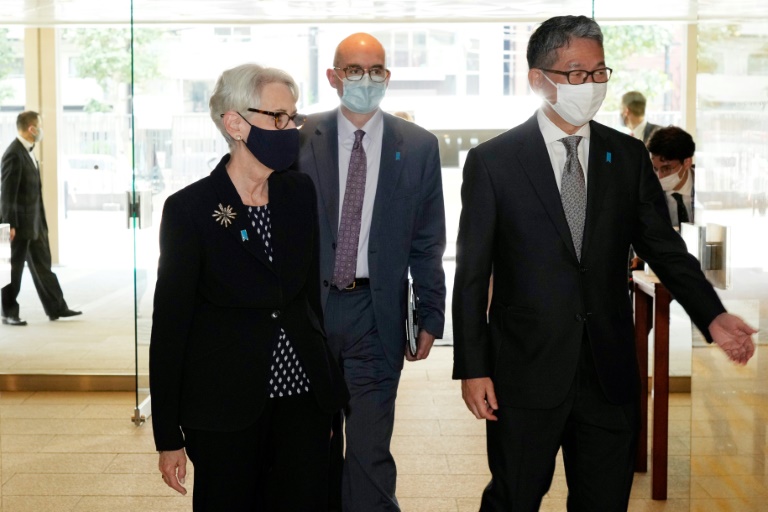US Deputy Secretary of State Wendy Sherman will travel to China this weekend to address deepening tensions, the State Department announced Wednesday, in the highest-level visit under President Joe Biden.
The trip is going ahead despite nearly daily new rifts between the two powers including on human rights and cybersecurity, indicating that both sides want at least to test the waters to see if diplomacy can bring more stability to a relationship often described as the most consequential to the world.
“These discussions are part of ongoing US efforts to hold candid exchanges with PRC officials to advance US interests and values and to responsibly manage the relationship,” a State Department statement said, referring to the People’s Republic of China.
“The deputy secretary will discuss areas where we have serious concerns about PRC actions, as well as areas where our interests align,” it said.
The trip will still not have the trappings of a full-fledged official visit. Sherman will not go to Beijing but instead spend two days starting Sunday in Tianjin, the eastern port city.
The State Department said she would meet senior officials in Tianjin including Foreign Minister Wang Yi.
John Kerry, the former secretary of state turned US climate envoy, is the only other senior official from the Biden administration to visit China as the world’s two largest emitters pledged to work together on the planetary crisis despite their differences.
Kerry did not hold talks in the capital either but rather met with his climate counterpart in Shanghai where there were few public sightings of the usually media-friendly former senator.
Secretary of State Antony Blinken and Jake Sullivan, Biden’s national security advisor, met in March in Alaska with Wang as well as top official Yang Jiechi in a visibly tense meeting in which the Chinese side berated the United States in front of the cameras.
– Suspense on trip –
Just hours before Sherman’s visit was announced, Beijing warned that efforts on climate — seen by Biden as a key common interest — would be at risk if the United States continues to “wantonly interfere in China’s internal affairs.”
“I want to emphasize that the cooperation between China and the United States in specific fields is closely related to the overall health of Sino-US relations,” foreign ministry spokesman Zhao Lijian said.
Since last week, the United States publicly accused Beijing of carrying out the massive hack in March of Microsoft Exchange and issued a business advisory warning of risks in Hong Kong. The US Senate also voted to ban imports from the Xinjiang region due to allegations of forced labor.
China denounced what it called a “fabricated” campaign by the United States which rallied allies including NATO for a rare joint condemnation on purported cyber attacks.
Sherman is already in Asia with a tour of Japan, South Korea and Mongolia. A State Department announcement of her travel last week raised eyebrows by not including China, indicating the two sides were continuing to negotiate whether she should visit.
Biden has largely kept the hawkish stance on China of his predecessor Donald Trump, with US policymakers across party lines saying that an increasingly assertive Beijing is the pre-eminent challenge for the United States.
But Biden has promised a more focused approach of working with allies on China and has toned down the more vitriolic statements from late in Trump’s tenure.
The State Department also announced that Sherman would continue on to Oman.
The Gulf sultanate has been the key go-between for the United States and Iran, diplomacy in which Sherman was closely involved under former president Barack Obama.










